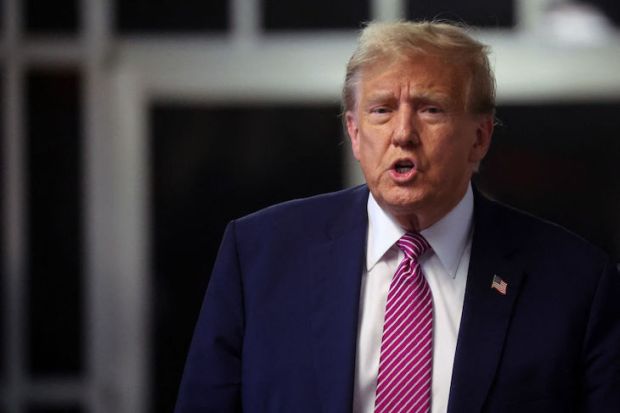It’s been over a week now since Salvador Ramos burst in to an elementary school in Uvalde, Texas and fatally shot 19 children and two teachers. Still a question remains: why did he do it?
One answer is that he was evil: evil people do evil things. Another is that he was crazy: crazy people do crazy things. And yet another is that he was made to do bad things because of all the bad things that had happened to him: Ramos reportedly had a childhood speech impediment and was subjected to bullying because of this.
These explanations all share one thing: the conviction that human behaviour is broadly explicable. But some acts are so phenomenally wicked they test the limits of our capacity to understand them. They are just too morally grotesque, making it almost impossible to transport ourselves into the shoes – or blood-soaked trainers – of the perpetrator in question. The Uvalde massacre is one such criminal outrage.
You will have by now read or heard all about the horrifying grotesqueness of Ramos’s crime and the terror and suffering he inflicted on his young victims. It is difficult and deeply upsetting to imagine what must have been going through their minds when Ramos launched his attack. It is perhaps even harder to imagine what must have been going through Ramos’s mind. And it is harder still, bordering on the indecent, to imagine what he must have felt.
Many professional killers have testified how the act of killing, in the moment of its execution, made them feel supremely powerful, even God-like. One Russian hitman told the British historian Simon Sebag Montefiore that killing ‘gives you a secret something – a force, a confidence, afterwards’. Other killers have said something similar, but I’ll spare you the scandalous quotes. (The historian Joanna Bourke has an entire chapter on the ‘pleasures’ of war and killing in her book An Intimate History of Killing: Face-to-Face Killing in Twentieth Century.) Did Ramos feel a sense of exhilaration as he carried out his massacre? It seems perverse even to raise this question, but if we’re to better understand such rampages then we need to do so.
Ramos, of course, was not a professional killer: he was a loner who had no criminal record and had only recently come into possession of the assault-rifle he used for his shooting spree. Professional killers tend to be deeply moralistic, if not laughably sentimental, about not killing children, while showing not the slightest moral unease about killing their older relatives. Ramos, clearly, had no moral qualms about killing children. Indeed, he seems to have deliberately targeted children. Why?
Given that Ramos is dead, we may never know. Although it seems that he had no specific grievances against the victims he killed. One possible answer is that he wanted to commit the most horrifying atrocity in recent memory. He wanted to do the worst of the worst and take his place in history as America’s most notorious mass shooter.
The terrifying truth is that this motivation is no surprise. Mass killers are intensely peer competitive. In their research on public mass shootings from 1966 to 2019, scholars Adam Lankford and James Silver found that many mass-shooters viewed ‘body counts as a competition, and therefore…attempted to surpass the death tolls of previous attackers’. The Sandy Hook shooter, Adam Lanza, had posted online that he admired Anders Breivik, who murdered 77 people in a far-right terrorist atrocity in 2011, and had likely wanted to exceed that grim toll.
But why would Ramos want such notoriety? And how could he have become so morally deformed as to murder scores of school children to acquire it? We don’t know and may never know. But whatever it is, it has to do an ordinate amount of heavy-lifting to arrive at the mass-murder of innocent school children.
Another possibility is that there is no real or coherent reason for Ramos’s murderous actions. In We Need To Talk About Kevin, Lionel Shriver’s novel about a school shooter, the protagonist tries out various motive-explanations for his murder-spree. None of them work and he concedes that he has no idea why he did what he did. Perhaps Ramos, like the fictional mass-killer in Shriver’s book, is similarly incomprehensible and that our efforts to understand him will be thwarted by the possibility that that none of what he did makes any sense at all.
Got something to add? Join the discussion and comment below.
Get 10 issues for just $10
Subscribe to The Spectator Australia today for the next 10 magazine issues, plus full online access, for just $10.




















Comments
Don't miss out
Join the conversation with other Spectator Australia readers. Subscribe to leave a comment.
SUBSCRIBEAlready a subscriber? Log in